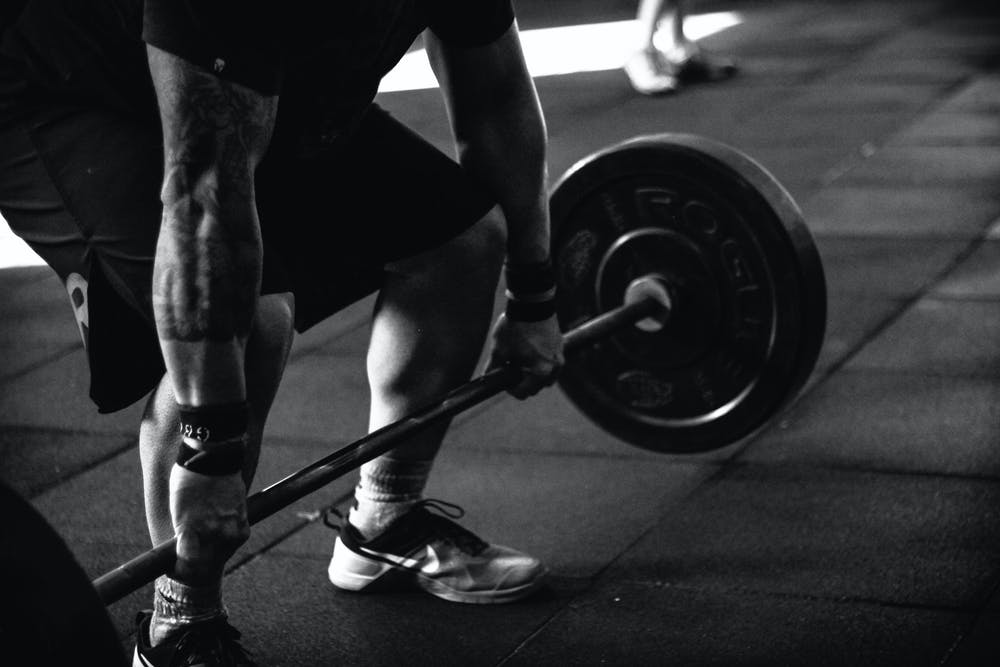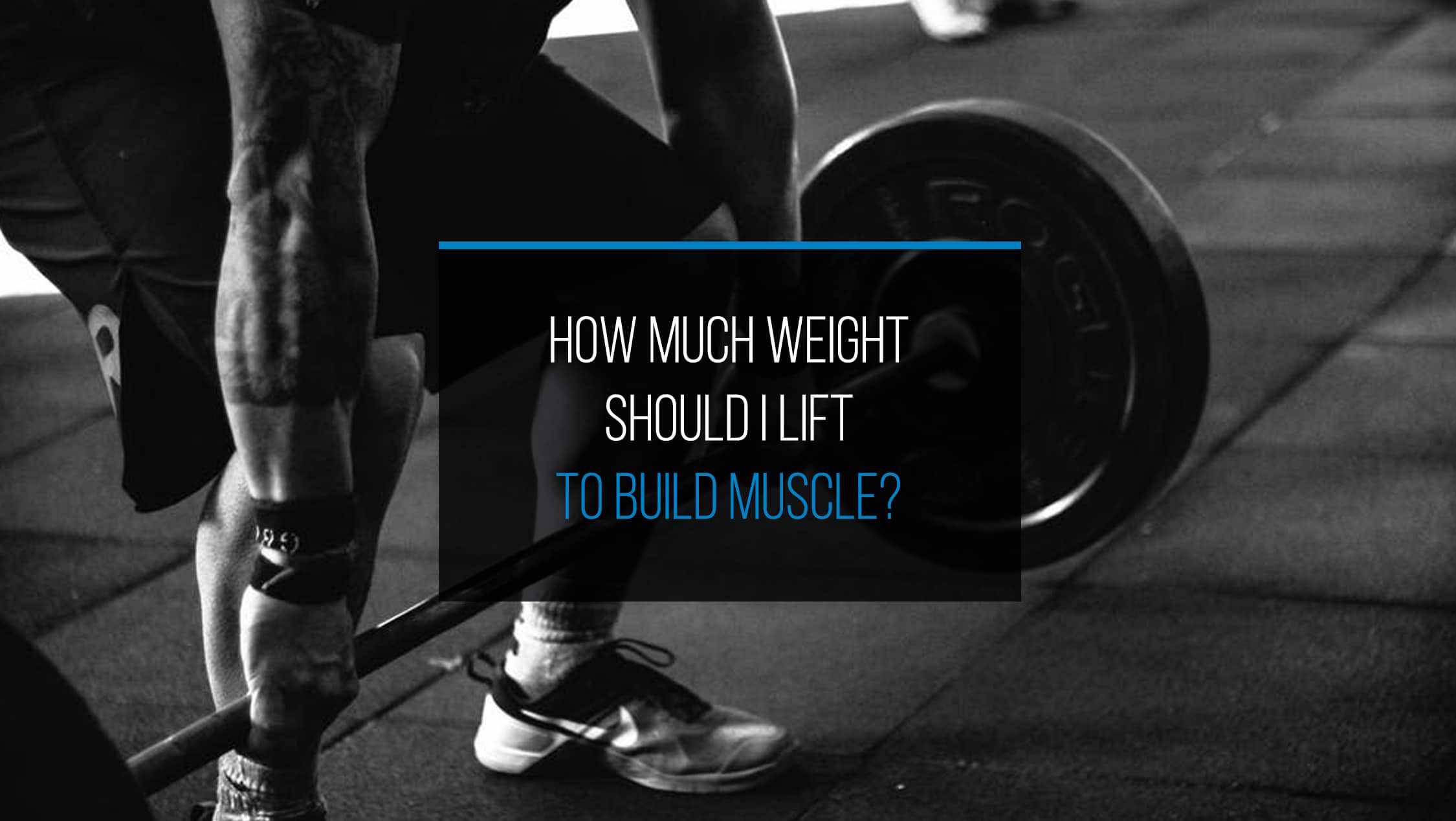You came here with an expectation of how many weights you should lift to gain muscle mass. However, one of the things you should know is a common misconception about lifting any form of weight: the more you lift, the faster you will see and feel results. Of course, increasing muscle and improving yourself is something everyone should aspire to be. Why wouldn’t you want to be the best version of you possible?
The initial question is how many weights should I lift to build muscle? If you are looking to build muscle, it is good to understand two concepts in making your muscles stronger: gaining muscle mass, which is your overall measure of strength, and how much you can lift. The second way is building muscle endurance, which boils down to any given muscle ability to consistently and repetitively exert force.
In this post, we will be diving more deeply into the subject. It is important to know exactly what we can do in order to refrain from serious injury as well as how to improve our muscle building experience to the highest. Keeping in step with a positive spirit, let’s dive right into things and kickstart your journey into getting some serious gains!
Gaining Muscle Mass
Going more into detail on gaining muscle mass will be your overall strength and how much you CAN lift. Building muscle mass comes from doing anywhere between 8 to 10 reps of the most amount of weight you can do without hurting yourself.
Some things you can keep in mind while gaining muscle mass for better efficiency are:
- Pick the right exercises (squats, bench press, and deadlift).
- Make time for more frequent workouts.
- Concentrate more on muscle building.
- Eat more protein.
- Focus on body fat loss.
- Get plenty of rest.
- Don’t make your diet a low-carb diet.

Building Muscle Endurance
Muscular endurance essentially boils down to any given muscle’s ability to consistently and repetitively exert force. Muscle endurance improves by doing many reps with a lower amount of weight. Down below are five main ways you can build muscle endurance efficiently:
- Bodyweight squats
- Planking
- Pushups
- Situps
- Walking lunges
How Many Times a Week Should I Lift Weights To Gain Muscle?
Dedicating yourself to a set routine will be fundamental to your goals of getting bigger muscles. At first, finding that time or, more importantly, sticking to the time you make will be difficult, but it will become a better routine and more comfortable to micromanage as time goes on.
Going to the gym a bare minimum of twice a week and working with weights would allow you to begin seeing some muscle growth, but optimally you want to go three times per week to see the most amount of progress and giving your body a healthy amount of time to rest.
Is It Better To Lift Heavy Or Light Weights To Gain Muscle?
As we discussed above, both sides of this play an essential part in your overall muscle growth, but breaking down which method you want to start with is a vital step.
Starting with improving your muscle endurance (lightweights) will give you the ability to work out for more extended periods and lessen the strain on your body when switching over towards building muscle mass. It stands to reason that having the stamina work harder on the bigger weights would allow you to see progress a bit faster than the other way around. This method is also better suited to people who aren’t specifically gym savvy, to begin with, and is a much better starting point.

Can You Build Muscle Just By Lifting Weights?
Contrary to popular belief, building muscle doesn’t happen during your workout. Your gym efforts essentially act like a catalyst that begins the process of breaking the muscle down and getting it into a position to rebuild itself more robust than before. A better mental image would be the art of folding steel over and over to make it stronger and more purified. After your workout, the primary difference is how you take care of yourself and how prominent your muscle gains will be.
Resting alone is not enough to truly satiate your growing needs, though. You must combine it with sleeping correctly and maintaining a nutritional diet to see progress. If you were to lift weights without going through those mentioned above, then you would potentially be putting yourself in a far worse position from overtraining, which would mitigate your efforts, or worse, cause you to lose muscle mass.
Can You Build Muscle With Small Weights?
Building your muscles can lead you down all manner of different methods and tactics, and it’s imperative to utilize techniques best suited to your physical needs and capabilities. You most definitely can build muscle with the increased repetition possible from using smaller weights. The muscular endurance you gain using this method is an incredible stepping stone in your general health and plays an essential part in your day to day life.
Before making use of this style, you may feel fatigued doing activities that require only a minor amount of effort, like extensive walking or going up and downstairs (especially for those of us who may not have begun our fitness journey before reading this). Still, over time, these activities become much more manageable. It’s an extraordinary moment when you start to see the efforts of your labor bearing fruit in your day to day life, and it’s in those moments the drive to improve will strike even more substantial and give you the motivation to strive to even greater heights!
Will 10 Pound Weights Build Muscle?
Since we know that you can gain muscle with minimal weights, building muscles with 10 pounds is a common question among beginners. The short answer would be yes.
Going more in-depth, assuming your physical limits are at this weight, you can have it as a starting point, but it is essential to know that you will need to increase the weights you work with to see as you progress in your routine muscle growth. Stagnation in your training style will halt your progress just as bad as not training at all. The key would be to gradually increase the weight as you become more comfortable with your current limitations.
Is It Okay To Lift Weights Every Day?
Technically speaking, you can lift weights every day. If you alter your schedule to facilitate that process in the first place, it’s far better for your life to give yourself ample time to rest. However, continually straining yourself around lifting each day on the same muscles would generate negative growth in the areas you don’t allow to relax, but you can work around it.
By only targeting only specific parts of your muscle group and rotating it to give that area the downtime it needs to build up, you can effectively target all groups throughout the week. For example, on Wednesday, you can work on legs, while Thursday, your main focal point is your arms. Doing so is a much more advanced approach to weight lifting and not recommended for beginners.
How Soon Will I See Results From Lifting Weights?
The best things in life come to those who wait, and gaining muscle is no exception. You won’t see massive amounts of progress overnight, but you can begin to feel yourself gaining confidence almost immediately and mental clarity shortly after that. Your real gains will start sprouting about four weeks into your newly established regimen.
Still, the significant changes in mass and endurance begin fleshing out anywhere between 8 to 12 weeks after you’ve taken the plunge. The ever-popular before and after pictures we see posted worldwide can serve as even more motivation during this time. It also can be used as a hallmark on your fitness journey!
How Should I Lift Weights To Build Muscle?
Before lifting anything, you want to get your blood pumping and reduce your chances of injury by giving yourself a running start, both literally and figuratively. A solid warm-up will allow you to push yourself further and make your workouts more effective; stretching your muscles’ ligaments and tendons will be a massive factor in what you can get done.
After that, it’s what kind of goal you are setting. General strength would be heavy sets for 5-7 reps, whereas muscle building would be hitting muscle failure at 8-12 reps, and muscle endurance, pushing more than 15 reps, would be ideal.
How Long Does It Take To Build Noticeable Muscle?
Sizeable muscle growth takes time, hard work, and dedication. Your significant changes will happen in that eight to twelve week time period for most people, but other factors also have to be considered. A person with a more heavyset physique would probably take a bit longer to reflect muscle gain due to loose skin or working off excess fat. Still, in those situations, you would be able to feel the progress you’ve made more than see them, but it will be noticeable regardless. Another example is someone with a more lightweight frame could notice the gains a bit sooner, but we are all different and experience muscle growth differently.
Keeping a step with a proper diet and resting portions of your new exercise routine are critical to notice any changes at all. As we said before, skipping or shorting yourself in either direction will increase the amount of time required to make changes or make the difference between having any in the first place.
How Much Weight Should I Lift For My Size?
The proper weight varies from person to person. Truthfully so, the most straightforward measurement provided would be finding a weight that allows you to do three sets of 10 reps for any given exercise of the muscle you are working on. By the end of your tenth rep on your first set, you should be having a slightly hard time lifting it, but not so much you are holding your breath, shaking excessively, or straining.
Between your reps, you want to rest for roughly 45 seconds maximum before going to your next set, and by the end of your tenth rep on the final set, you should be able to finish without breaking form or grunting. If the last rep in your third set isn’t proving a challenge, then you need to scale with where your performance is.
Final Thoughts
The entire goal of building muscle and weight lifting is giving yourself a better quality of life and opening yourself up to more possibilities in terms of enjoying life. Focusing on a specific amount of weight to lift takes away from the journey and can lead you to a dead-end when you hit that long-sought-after goal. A fundamental principle of weightlifting is progressive overload (which adds more weight over time), which should be applied to all aspects of your routine and further your life. When things get too comfortable, shake it up, and never stop making gains!

